-
 bitcoin
bitcoin $87959.907984 USD
1.34% -
 ethereum
ethereum $2920.497338 USD
3.04% -
 tether
tether $0.999775 USD
0.00% -
 xrp
xrp $2.237324 USD
8.12% -
 bnb
bnb $860.243768 USD
0.90% -
 solana
solana $138.089498 USD
5.43% -
 usd-coin
usd-coin $0.999807 USD
0.01% -
 tron
tron $0.272801 USD
-1.53% -
 dogecoin
dogecoin $0.150904 USD
2.96% -
 cardano
cardano $0.421635 USD
1.97% -
 hyperliquid
hyperliquid $32.152445 USD
2.23% -
 bitcoin-cash
bitcoin-cash $533.301069 USD
-1.94% -
 chainlink
chainlink $12.953417 USD
2.68% -
 unus-sed-leo
unus-sed-leo $9.535951 USD
0.73% -
 zcash
zcash $521.483386 USD
-2.87%
What should I do if the KDJ golden cross in the oversold zone but the volume continues to be sluggish?
A KDJ golden cross in the oversold zone may signal a bullish reversal, but without rising volume or supporting indicators, it could be a false signal.
Jun 21, 2025 at 03:28 am
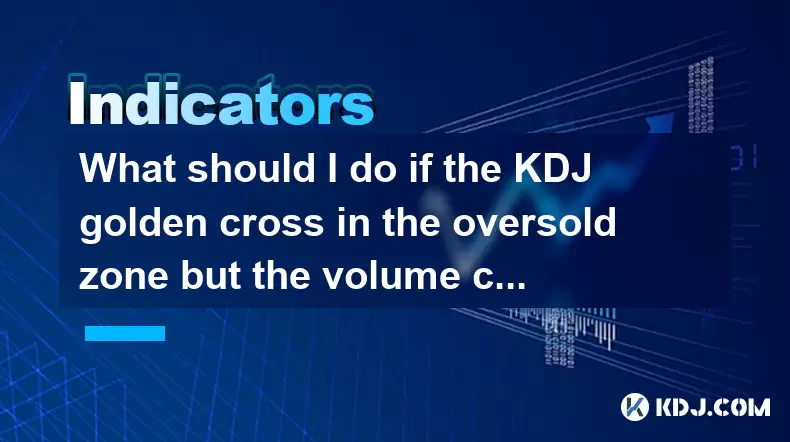
Understanding the KDJ Indicator and Its Significance
The KDJ indicator, also known as the stochastic oscillator, is a momentum-based technical analysis tool widely used in cryptocurrency trading. It consists of three lines: the %K line, the %D line (a moving average of %K), and the %J line (a projection of the trend). When the %K line crosses above the %D line in the oversold zone (typically below 20), it forms what is called a KDJ golden cross, suggesting a potential bullish reversal.
However, this signal must be interpreted carefully, especially when other metrics like volume do not confirm the move.
In crypto markets, where volatility is high and manipulation is possible, relying solely on one indicator can lead to false signals.What Does a KDJ Golden Cross in Oversold Zone Indicate?
A KDJ golden cross in the oversold zone typically indicates that the price may have reached a level where sellers are exhausted and buyers could soon step in. In traditional markets, this is often seen as a strong buy signal. However, in the cryptocurrency market, this needs to be evaluated with caution due to its unique characteristics such as high volatility, low liquidity for some altcoins, and frequent whale movements.
When the KDJ forms a golden cross but the price doesn’t rally immediately, traders should look at supporting indicators and price action to avoid premature entries.Why Volume Matters in Confirming a Bullish Signal
Volume is a critical factor in validating any technical signal. If the KDJ golden cross occurs but volume remains low, it suggests that there is no real buying interest despite the indicator's bullish crossover. This divergence between the indicator and volume may indicate a false signal or weak momentum behind the potential reversal.
To evaluate this situation properly:
- Check the average daily trading volume over the past 7–14 days.
- Compare current volume levels with those during previous rallies.
- Look for signs of accumulation through on-chain data tools like Glassnode or Santiment.
How to Analyze Supporting Indicators Alongside KDJ
Relying only on the KDJ indicator can be misleading. It’s essential to incorporate other tools into your analysis to better understand whether the signal is valid.
Here are key indicators to check:
- Moving Averages (MA): See if the price is above or below major MAs like the 50-day or 200-day.
- Relative Strength Index (RSI): Check if RSI confirms the oversold condition and whether it shows signs of turning up.
- MACD: Look for crossovers or histogram expansion that might confirm a shift in momentum.
- Order Book Depth: Especially important in crypto; thin order books can cause false breakouts.
- On-chain Metrics: Tools like NVT ratio, exchange inflows/outflows, and whale activity can provide deeper insights.
Practical Steps to Take When Facing This Scenario
If you observe a KDJ golden cross in the oversold zone but notice that volume remains sluggish, here’s a structured approach to manage your position or decision-making:
- Do not rush into a trade just because of a single indicator signal.
- Wait for confirmation from price action—like a breakout above a resistance level or a close above a key moving average.
- Monitor volume changes over the next few candles to see if there’s a sudden surge that aligns with the KDJ signal.
- Set alerts using platforms like TradingView or native exchange tools so you don’t miss any significant moves.
- Use stop-loss orders conservatively if you decide to take a small speculative position.
Strategies to Consider in This Situation
Depending on your trading style and risk tolerance, here are several strategies you can consider when facing this conflicting scenario:
- Scalping Strategy: If you’re an experienced scalper, you may attempt to take small profits based on minor bounces after the KDJ cross, but always keep tight stops.
- Swing Trading Approach: Wait for a candlestick pattern or a higher timeframe breakout before entering.
- DCA (Dollar-Cost Averaging) Entry: If you believe in the long-term value of the asset, you can initiate a small position and scale in gradually as volume picks up.
- Short-Term Hedging: If the broader market is bearish, consider hedging your exposure with inverse perpetual contracts or options if available.
Frequently Asked Questions
Q1: Can the KDJ indicator be trusted in crypto markets?While the KDJ is a popular tool, its reliability depends heavily on market conditions and asset liquidity. In highly volatile or manipulated environments, it may generate many false signals unless combined with other tools.
Q2: What is considered a normal volume level in crypto?Normal volume varies by asset. For example, Bitcoin typically sees billions in daily volume, while smaller altcoins may only have millions. Use relative volume comparisons over time rather than absolute thresholds.
Q3: How long should I wait after a KDJ golden cross to confirm the signal?There’s no fixed time frame. Some traders wait for at least two to three candlesticks showing rising volume and positive price action before considering the signal confirmed.
Q4: Should I ignore trades entirely if volume isn’t supporting the KDJ signal?Not necessarily. You can still take small speculative positions or paper trade to test the waters, but always maintain strict risk control and avoid overexposure.
Disclaimer:info@kdj.com
The information provided is not trading advice. kdj.com does not assume any responsibility for any investments made based on the information provided in this article. Cryptocurrencies are highly volatile and it is highly recommended that you invest with caution after thorough research!
If you believe that the content used on this website infringes your copyright, please contact us immediately (info@kdj.com) and we will delete it promptly.
- Crypto Crossroads: Bitcoin Price Reacts to Fed Jitters Amidst Shifting Sands
- 2026-02-02 05:05:02
- Justin Sun, Tron, Manipulation Allegations: New Bitcoin Strategy Meets Lingering Controversy
- 2026-02-02 05:05:02
- Bitcoin Eyes $77K as Michael Saylor Reaffirms Unwavering Conviction Amidst Market Swings
- 2026-02-02 05:00:02
- Altcoin Season on the Horizon? ETH, XRP, SOL, ADA Face Potential 184x Gains Amidst Shifting Crypto Landscape
- 2026-02-02 05:00:02
- Bitcoin ETF News: Latest Updates Drive Investment and Market Dynamics
- 2026-02-02 04:50:02
- Rare Royal Mint Coin Error Fetches Over £100: The 'Fried Egg' £1 Coin Phenomenon
- 2026-02-02 04:45:01
Related knowledge
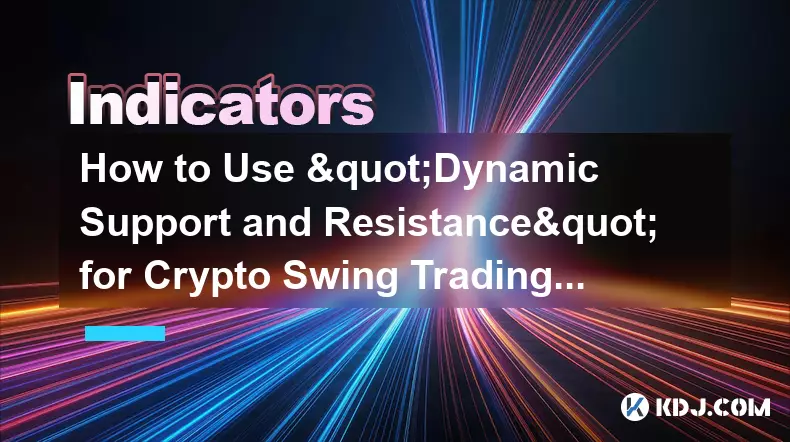
How to Use "Dynamic Support and Resistance" for Crypto Swing Trading? (EMA)
Feb 01,2026 at 12:20am
Understanding Dynamic Support and Resistance in Crypto Markets1. Dynamic support and resistance levels shift over time based on price action and movin...
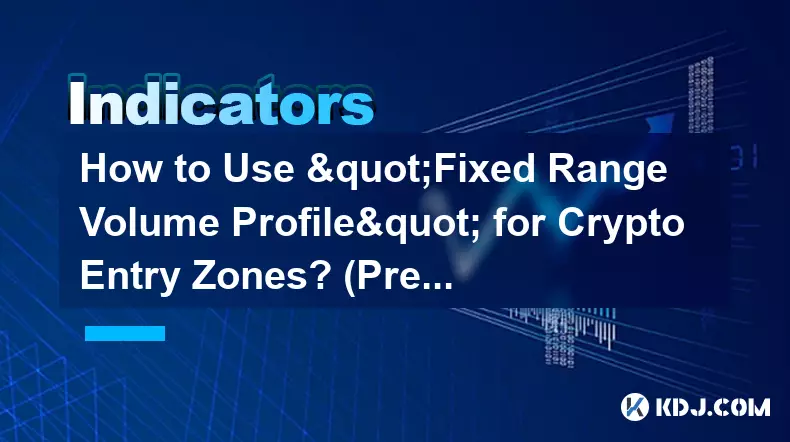
How to Use "Fixed Range Volume Profile" for Crypto Entry Zones? (Precision)
Feb 01,2026 at 10:19pm
Understanding Fixed Range Volume Profile Mechanics1. Fixed Range Volume Profile (FRVP) maps traded volume at specific price levels within a defined ti...
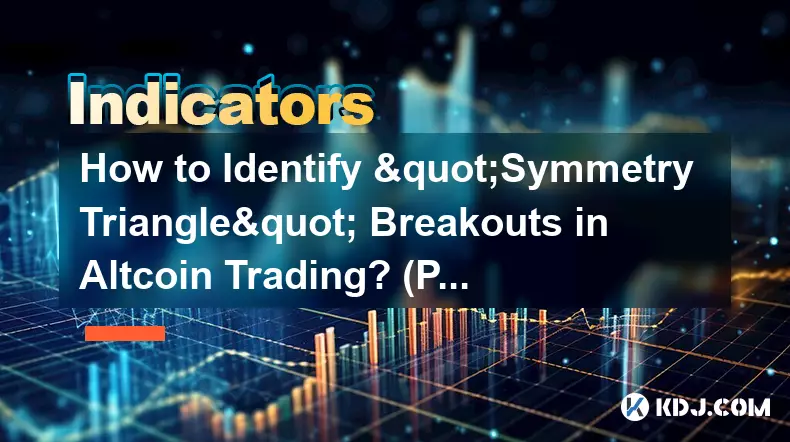
How to Identify "Symmetry Triangle" Breakouts in Altcoin Trading? (Patterns)
Feb 01,2026 at 01:39pm
Symmetry Triangle Formation Mechanics1. A symmetry triangle emerges when price action consolidates between two converging trendlines—one descending an...
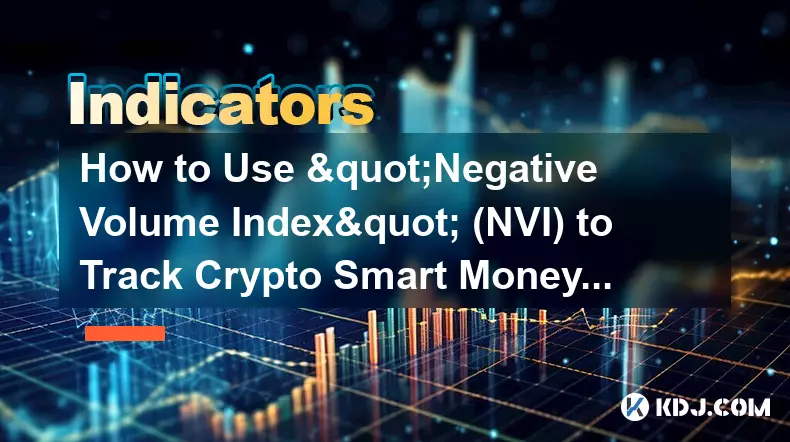
How to Use "Negative Volume Index" (NVI) to Track Crypto Smart Money? (Pro)
Feb 01,2026 at 02:40am
Understanding NVI Mechanics in Crypto Markets1. NVI calculates cumulative price change only on days when trading volume decreases compared to the prio...
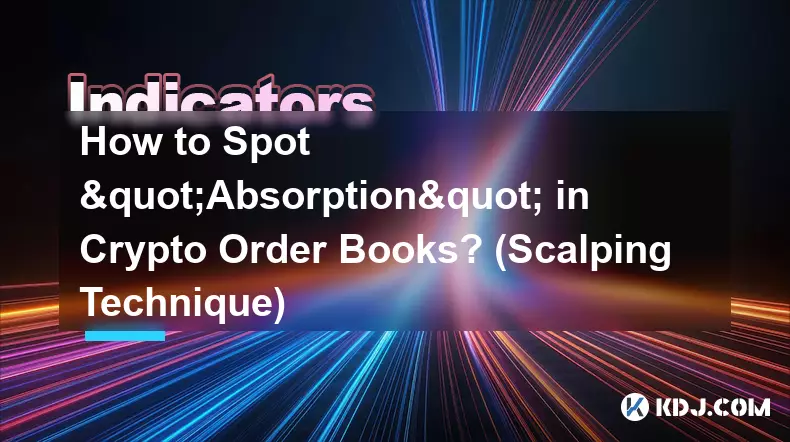
How to Spot "Absorption" in Crypto Order Books? (Scalping Technique)
Feb 01,2026 at 08:39pm
Understanding Absorption Mechanics1. Absorption occurs when large buy or sell orders repeatedly appear and vanish at the same price level without trig...
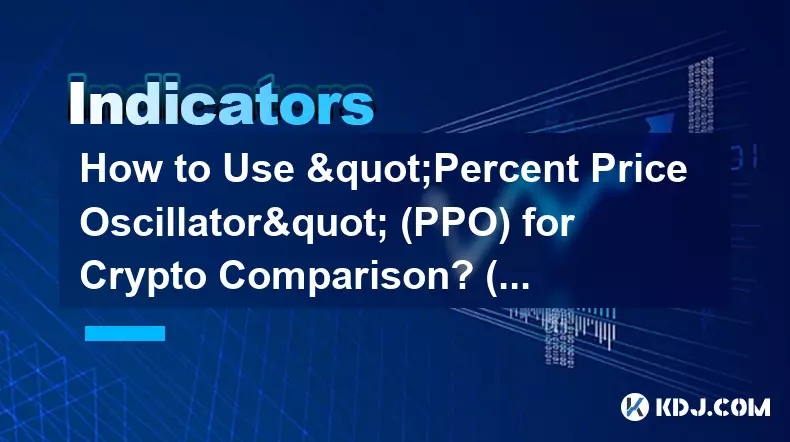
How to Use "Percent Price Oscillator" (PPO) for Crypto Comparison? (Strategy)
Feb 01,2026 at 01:59am
Understanding PPO Mechanics in Volatile Crypto Markets1. The Percent Price Oscillator calculates the difference between two exponential moving average...

How to Use "Dynamic Support and Resistance" for Crypto Swing Trading? (EMA)
Feb 01,2026 at 12:20am
Understanding Dynamic Support and Resistance in Crypto Markets1. Dynamic support and resistance levels shift over time based on price action and movin...

How to Use "Fixed Range Volume Profile" for Crypto Entry Zones? (Precision)
Feb 01,2026 at 10:19pm
Understanding Fixed Range Volume Profile Mechanics1. Fixed Range Volume Profile (FRVP) maps traded volume at specific price levels within a defined ti...

How to Identify "Symmetry Triangle" Breakouts in Altcoin Trading? (Patterns)
Feb 01,2026 at 01:39pm
Symmetry Triangle Formation Mechanics1. A symmetry triangle emerges when price action consolidates between two converging trendlines—one descending an...

How to Use "Negative Volume Index" (NVI) to Track Crypto Smart Money? (Pro)
Feb 01,2026 at 02:40am
Understanding NVI Mechanics in Crypto Markets1. NVI calculates cumulative price change only on days when trading volume decreases compared to the prio...

How to Spot "Absorption" in Crypto Order Books? (Scalping Technique)
Feb 01,2026 at 08:39pm
Understanding Absorption Mechanics1. Absorption occurs when large buy or sell orders repeatedly appear and vanish at the same price level without trig...

How to Use "Percent Price Oscillator" (PPO) for Crypto Comparison? (Strategy)
Feb 01,2026 at 01:59am
Understanding PPO Mechanics in Volatile Crypto Markets1. The Percent Price Oscillator calculates the difference between two exponential moving average...
See all articles










































































